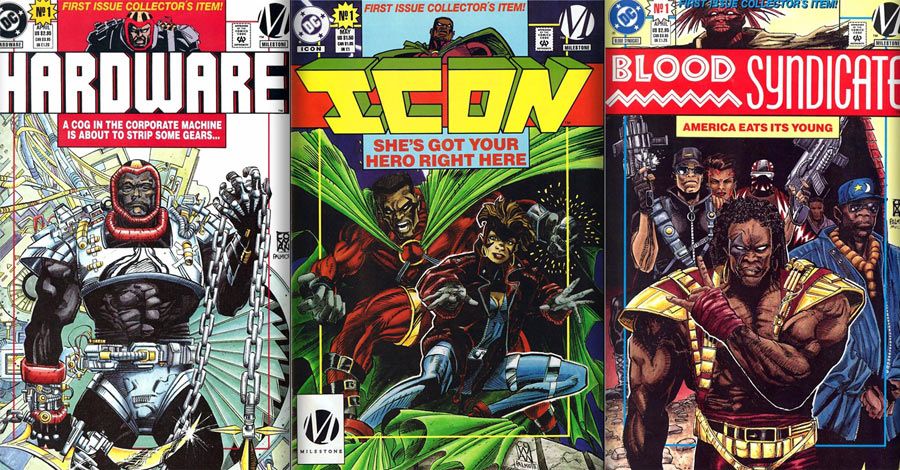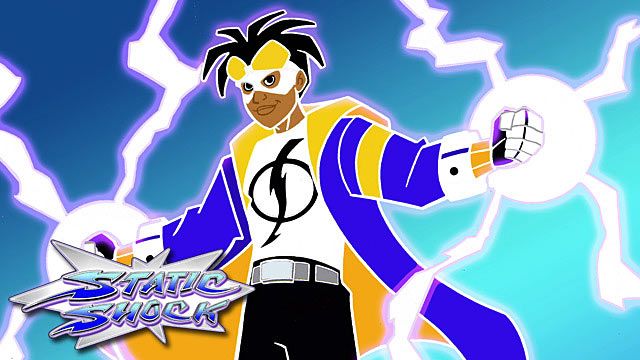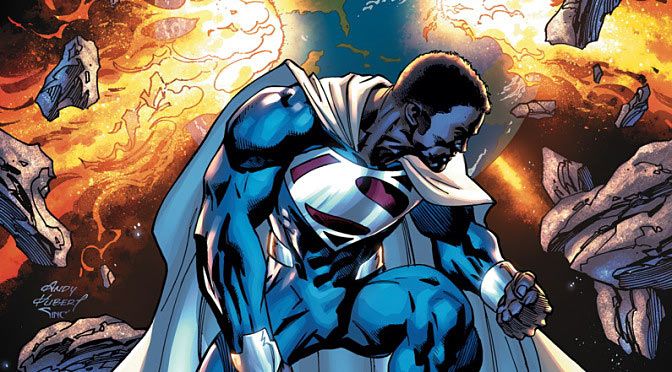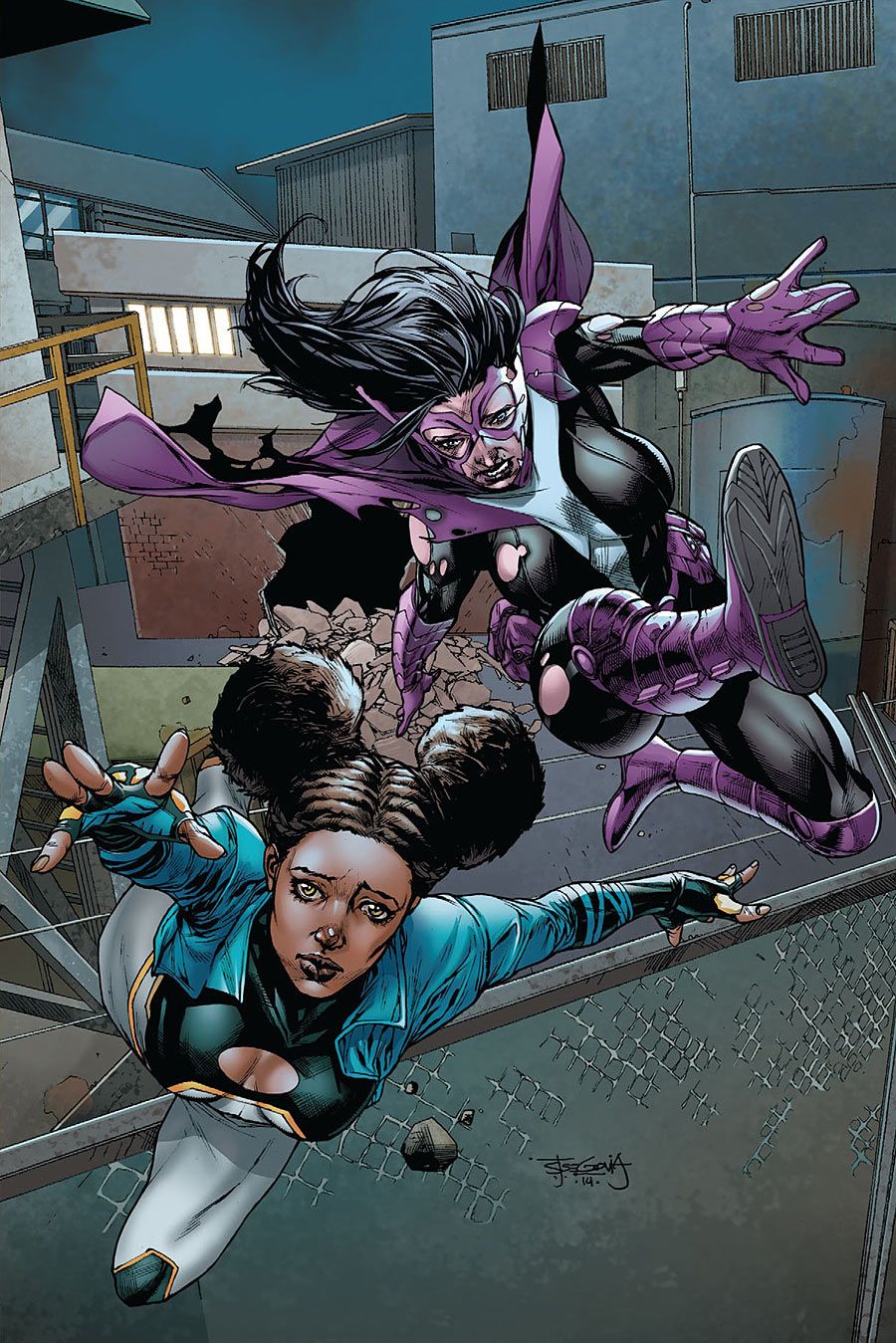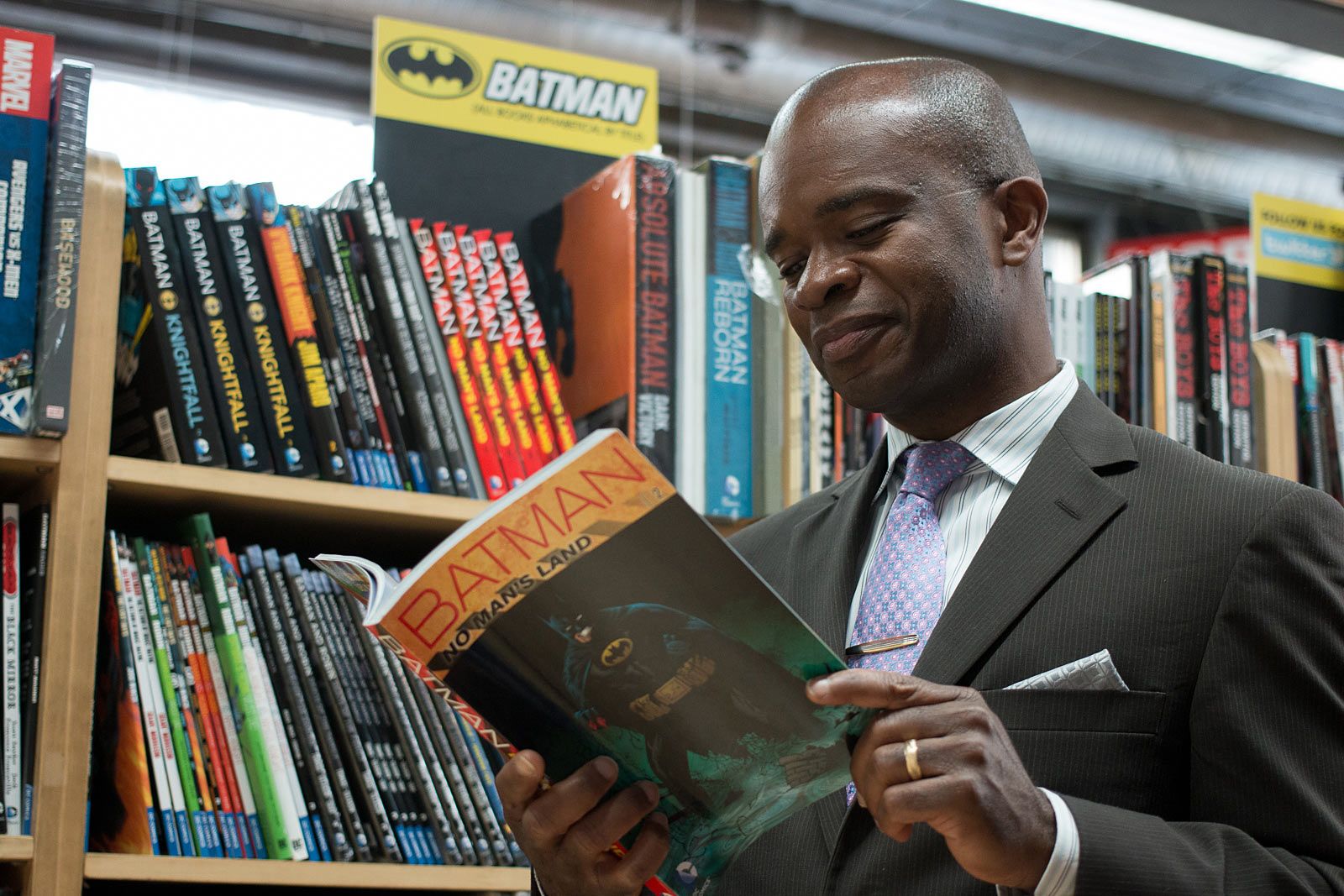In 1991, Milestone Media, Inc. was created.
Denys Cowan, Michael Davis, Dwayne McDuffie, Derek T. Dingle, and Christopher Priest founded the first mainstream Black-owned comic book company to have a business partnership with an established comic book industry giant, DC Comics.
When the Milestone line of comics launched in 1993 with comic books featuring a universe of multicultural characters, the comic book industry responded favorably. Never in the history of the comic book industry was a fictional universe full of ethnic, cultural, and lifestyle diversity produced to rival those qualities in Milestone's Dakotaverse. Not within the universes of Marvel and, or DC Comics, at the very least.
The four introductory titles -- "Hardware, "Icon," "Blood Syndicate," and "Static" -- were compared to existing comic books and heroes, but what was incomparable was the gravitas of the Milestone books and their commentary on socio-economic issues, race relations, class warfare, and corporate politics and a means of increasing income inequality.
"Hardware" was compared to "Iron Man," but the former dealt with issues of the corporate glass ceiling preventing Black men and women from job promotion and pay equal to non-POC counterparts.
"Icon" was compared to "Superman," but the former dealt with upper class ignorance to the plight of the lower class, city politics and assuming responsibility in lieu of belief in a capitalist society's "moral conscience."
"Static" was compared to "Spider-Man," but the former dealt with the fallout of America's victimization, judgment, and dismissal of its teenage youth.
"Blood Syndicate"... well, that title may not have been compared to anything, because a group of superpowered gangbangers is an idea no other publisher would have had the courage to tackle.
Milestone Media, Inc. benefitted from the sales boom of the early '90s, in part created by speculators looking to cash in on "The Death of Superman" and other such events, and like many other companies, Milestone Media, Inc. suffered from the seemingly sudden departure of said speculators, and the plummeting sales of many comic book series as a result.
In 1997, Milestone stopped producing monthly comics with DC Comics, and a few years later hit the more global media landscape of animated television.
"Static Shock," a cartoon based on the Milestone series "Static," about a Black teenaged genius with electricity-based power, premiered in the year 2000. The series went on to win awards, run for 52 episodes, and led to the release of two "Static Shock" comic book series.
Additionally, a two-part prestige format series called "Milestone Forever" was released from DC Comics in 2010, written by the now-departed Milestone co-founder Dwayne McDuffie. The series revealed the endings to the stories started in the four primary Milestone titles, and set the groundwork for the Milestone Dakotaverse to be integrated into the same DC Universe with Batman, Superman and the Justice League of America.
2013 was the 20th anniversary of Milestone Media, Inc.
As a member of the company staff during all of the years of first wave publications, I am amazed, humbled and thrilled by how many people still love Milestone, started their careers in comics because of Milestone, and want to see the return of Milestone.
The founders of Milestone Media, Inc. were my first mentors, and so when I am presented (and I am quite a bit) with the question, "When is Milestone coming back?", I never provide an answer more definitive than, "That's a question for the surviving founders," along with a statement of optimism.
But that question also disheartens me, because I feel like the people asking the question are setting themselves up for anything other than the answer they really want, which is "Tomorrow" or "Next year."
And maybe both the question and answer are much more multilayered.
Maybe the question isn't "When is Milestone coming back?" Maybe the question is "When can you give me a symbol, something to believe in, something so I know it wasn't just a spark or a flash or a blink in time among the seemingly monolithic sea of comic book superhero fiction?"
DC Comics, the company which has co-published Milestone's stories, has done an interesting thing.
Their comic book parallel universe, depicted in a series of comics under the title "Earth 2," is full of heroes of color. Characters with Caucasian counterparts in the main DC Universe.
- Hawkgirl
- Doctor Fate
- Power Girl (who happens to look similar to Milestone's teenage hero, Rocket)
- Superman
Yes, a Black Superman. A Black parallel universe Superman... because that's where Superman would be Black. Not here.
A friend of mine has suggested I read "Earth 2." After all, that's where I'll see DC Comics making a major stride with characters of color.
The more interesting parallel, at least to me, is that DC's "Earth 2" series began one year before the 20th anniversary of Milestone Media, Inc.'s comic book launch. It also began the year after the relaunch of Milestone's most popular hero "Static Shock," as part of the company's New 52 publishing initiative.
"Static Shock" was cancelled less than a year after its launch.
In 2013, there was no acknowledgment of Milestone's 20th anniversary from DC Comics, and we could be upset about that, but I considered that the reality of business.
Why, from a business standpoint, would DC Comics relaunch a universe of characters of color which is not entirely controlled by their corporation? At a time when DC Comics is, for a variety of intents and purposes, an IP lab/R&D division for their parent company, would not said parent company want to reap all of the profits without having to share?
How, I wonder, could DC Comics compensate for the dearth of characters of color present in the Milestone Dakotaverse?
Earth 2, AKA Planet of Color, could be one way.
An explosion of characters of color in the main DC Universe is another.
Both are possibilities. Both have come to pass. Neither may have any connection to Milestone.
Who knows?
This is not to say that we will never see Milestone comics again. In fact, history has proven that Milestone will not die.
The presence of Milestone is cyclical.
But that's not what I consider the best answer to the question "When is Milestone coming back?", if the question is asked of me ever again, and mind you, I'm not qualified to answer that question definitively.
But as a man who lost his father in his pre-teens, and lost one of his mentors in his forties, I know the answer to looking for leadership, for a way to the answer you want to hear so badly, is not the return of what you cannot manifest or wield or control.
The answer is to either become what you've lost, or create something new.
Or both.
To create something just as good, and potent, and creative, and imaginative.
To want to be as giving of yourself, as others were to you.
To learn from the sacrifices of those whom you admire, to emulate or improve upon the best of their actions, while hopefully avoiding the minefields, pits and bear traps they encountered.
So, honestly, I love Milestone Media, Inc., what it was for me as a younger man and extending into the present. Their heroes are my heroes. The founders are my mentors, friends, and allies.
But instead of someone asking me "When is Milestone coming back?", I'd prefer they know the answer.
I'd prefer the answer be "I am the next Milestone."
"This is who I am. This is what I can do well." And maybe even "This is when I'm going to do it."
To that, I would say...
"I can't wait to see it."
"Show no mercy, because neither Superman nor Iron Man is going to have mercy on you."
Joseph Phillip Illidge is the Head Writer for Verge Entertainment (www.verge.tv), a production company co-founded with Shawn Martinbrough, artist for the graphic novel series "Thief of Thieves" by "The Walking Dead" creator Robert Kirkman, and videogame developer Milo Stone. Verge has developed an extensive library of intellectual properties for transmedia development. Live-action and animated television and film, videogames, graphic novels, and web-based entertainment.
Joseph has been a public speaker on the subjects of race, comics, and politics at Digital Book World's forum, Digitize Your Career: Marketing and Editing 2.0, Skidmore College, Purdue University, on the panel "Diversity in Comics: Race, Ethnicity, Gender and Sexual Orientation in American Comic Books," and at the Soho Gallery for Digital Art in New York City.
His latest project is "The Ren," a 200-page graphic novel about the romance between a young musician from the South and a Harlem-born dancer in 1925, set against the backdrop of a crime war and spotlighting the relationship between art and the underworld. "The Ren" will be published by First Second Books, a division of Macmillan.
["The Mission" banner designed by Gavin Motnyk.]

